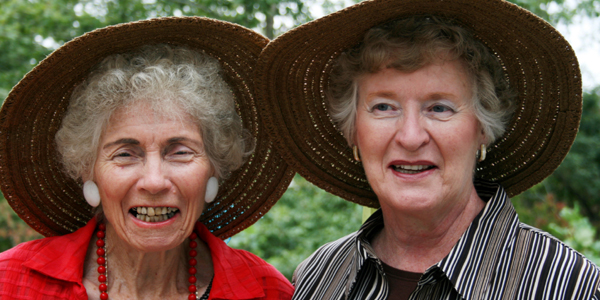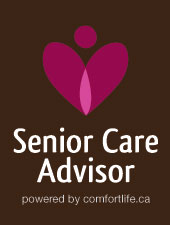3 Tips to Avoid Heat Stroke
I spoke with Steve Barlam, CPO and co-founder of LivHome, Inc. about how dangerous heat can be to seniors. Based in LA, heat is a real concern for the seniors in Steve's community, where the temperatures regularly sore past 38°C (100° F).
Although in Canada our heat isn't as bad, when you factor in the humidity, on days like today the temperature is expected to sore past 40°C. Here are some tips Steve shared that will help the seniors in your life stay cool, and some warning signs that they may be suffering from heat stroke and need medical attention.
3 Tips to Avoid Heat Stroke
1. Stay hydrated
- Drink plenty of water. Depending on body size, women should drink approximately 6-8 oz glasses of water a day and men should drink 8-10 oz glasses of water a day.
- Caffeinated beverages like coffee, tea and soft drinks as well as alcohol actually dehydrate the body, so avoid these types of beverages on a hot day
2. Dress appropriately
- Wear loose fitting clothing
- Choose natural fabrics, like cotton
- Wear a hat and sunscreen when outside
- Take a sun parasol if you have to stand in the heat
3. Stay Cool
- Ensure the temperature inside stays cool (under 29°C)
- Stay at home in the air conditioning on really hot days
- If you want to get out choose air conditioned areas like the mall, movie theaters, senior centres and friends houses
- If you take public transit try to avoid waiting outside in the sun for an extended length of time
Warning Signs of Heat Stroke
- A flushed face
- The body feels hot to the touch
- Experiencing headaches, nausea, vomiting, diarrhea, rapid pulse, dizziness
- Sudden onset of confusion (or exasperated confusion)
Take Special Care of Seniors with Dementia or Alzheimer's
Seniors who experience dementia, Alzheimer's or other forms of cognitive illness may experience the heat without being able to communicate how hot they are feeling. As well, a person with a cognitive impairment may not be able to feel their body's temperature accurately. As a result, many seniors may over-dress for the hot weather.
How to Treat Heat Stroke
If you notice symptoms of heat stroke get into a cool bath. You should visit your health care practitioner if you are experiencing any of they symptoms mentioned above.
In an emergency situation where there is a loss of electricity or water supply has been affected it's important to have an emergency kit on hand that includes a few gallons of water. Remember to take extra water with you if you take a road trip, just in case there is an emergency and you get stuck somewhere.
Read Helping Seniors Prepare for Emergencies to learn more about how to prepare for an emergency.
There are a number of technological devices available to monitor the temperature in a senior's home. These devices can send you a text message or call you if the home has become too hot. This allows someone to check in to make sure the senior is okay and their air conditioning is working properly.
Written by Kimberley Fowler
**********
How have you been dealing with the heat? Share your thoughts and tips in the comments section below.


